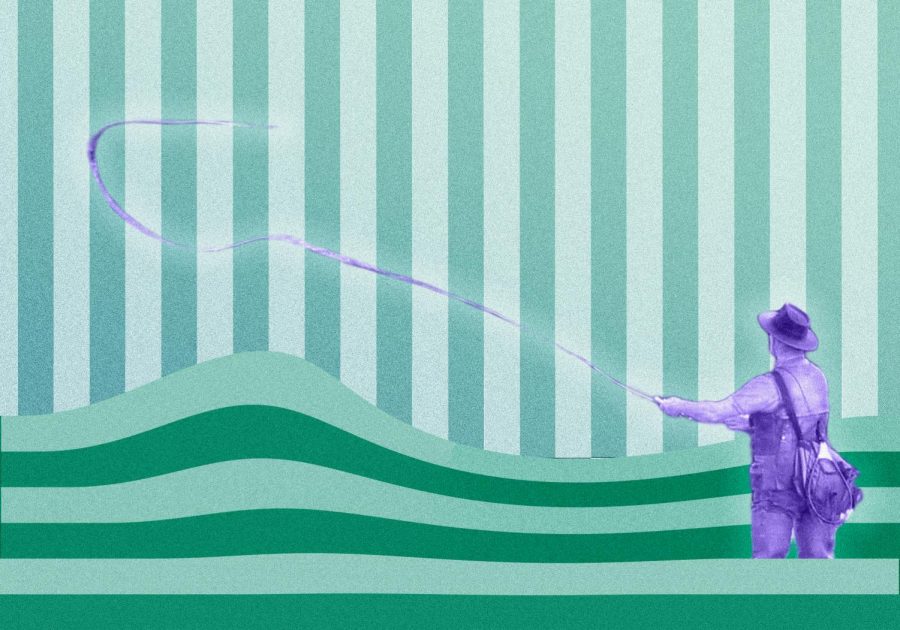Hunting and fishing is the definition of social distancing
April 27, 2020
A solo trek into the woods or a day out on the water by yourself has the power to keep your body healthy and your mind clear during the uncertain times brought on by COVID-19. You might even consider hunting and fishing as some of the best forms of social distancing, but the state government believes otherwise. The restrictions they’ve put on hunting and fishing are uncalled for.
Without generating alternative measures that could promote the safety and well-being of sportsmen and women in the outdoors, the Department of Fish and Wildlife (WDFW) shut down hunting and fishing seasons across the state until at least May 4. These closures coincide with Gov. Jay Inslee’s stay-at-home order.
The WDFW began with prohibitions on razor clam digging, camping on state lands, access to parks and wildlife areas and eventually closed statewide recreational fishing on March 25 followed by youth turkey and bear seasons on March 30.
Two days before the reopen date came on April 8, the department announced that the closure would extend until May.
The government saw hunting and fishing as a threat to the health of sportsmen and women. However, they failed to consider the fact that many Washington residents seek refuge and solidarity in both pastimes.
I have been an outdoorsman for as long as I can remember. Hunting and fishing have always been a big part of my life, and the ability to take part in those outdoor activities has kept me going in dark times when I needed them most. This is a dark time, and I imagine these closures are hitting others as hard as they are hitting me.
The solution to the problem is clear. Instead of maintaining closures until May, the state should create regulations on hunting and fishing which take the potential dangers of COVID-19 into account.
The rule changes should focus on the way people interact with each other while they take part in outdoor sports. Although hunting and fishing are primarily solo activities for most, the necessary precautions should be taken to ensure human contact is limited while coronavirus is still a threat.
Instead of issuing tickets and fines to those who would typically be hunting and fishing lawfully under any other circumstances, WDFW officers should focus their attention on ensuring the number of people in hunting parties is limited and fishing boats on public waters hold no more than one or two people at a time.
Officers could also look into whether a group of sportsmen or women come from the same household. If they have been quarantined together, there should be no problems with them being together outdoors.
Hunters and anglers should do what they can to change the minds of those who initiated these closures and have the power to extend them. If you agree with the fact that there are safe alternatives to a complete shutdown of hunting and fishing, there are ways to voice your opinion to those in charge.
Send a letter to the WDFW discussing effective ways of combating COVID-19 using the outdoors as a weapon. Convince them that hunting and fishing are vital to slowing the spread of the virus because people practicing these sports safely will be social distancing. Explain to them how the inability to hunt and fish may force hunters and anglers to get outside in ways that put them at risk of contracting coronavirus due to boredom and the need to be outdoors.
If the WDFW gets flooded with logical suggestions from the public and realizes how widespread the impact of these closures has become, the department may decide against extending the shutdown. Outdoorsmen and women will get outside any way they can, so why not show them safe ways of doing so?



